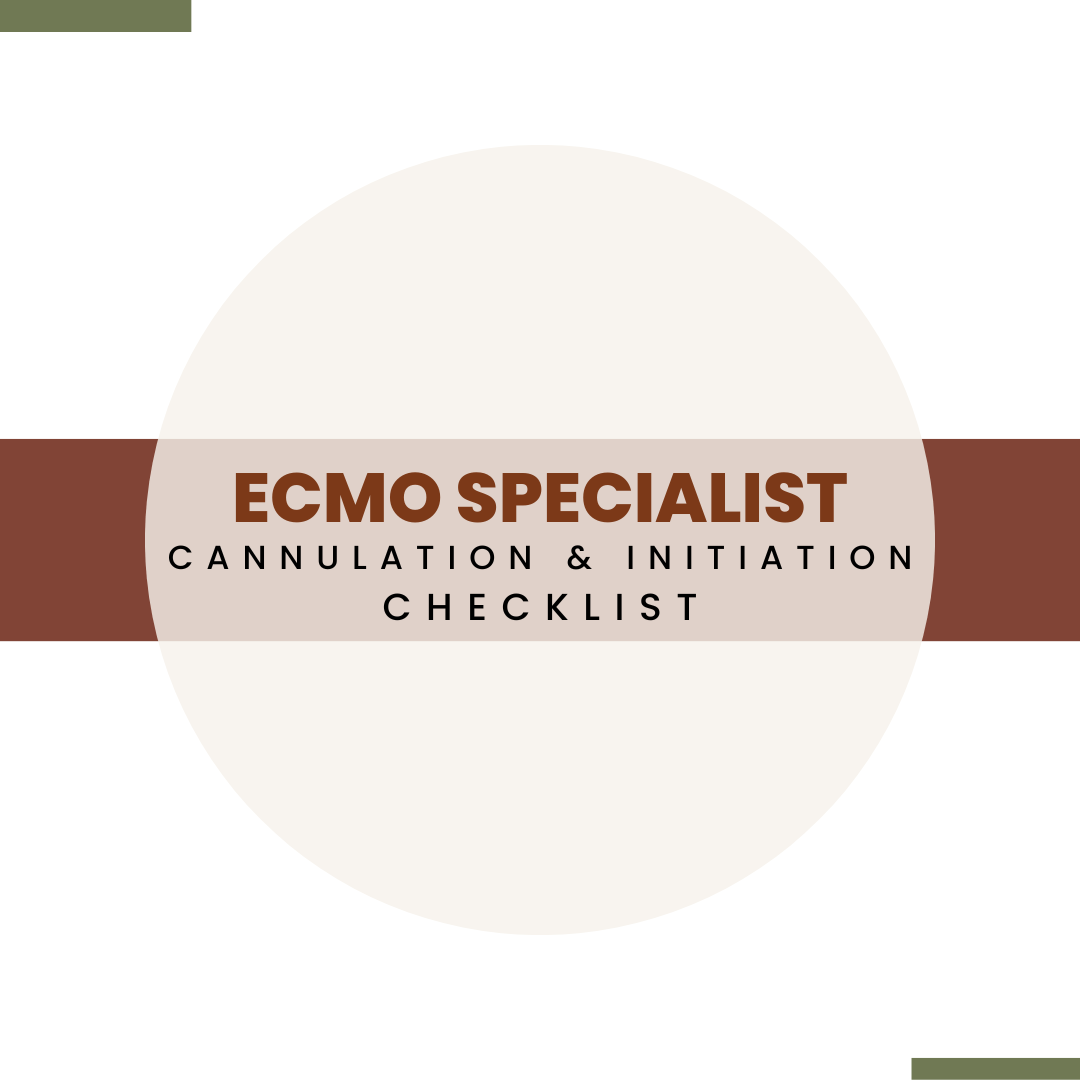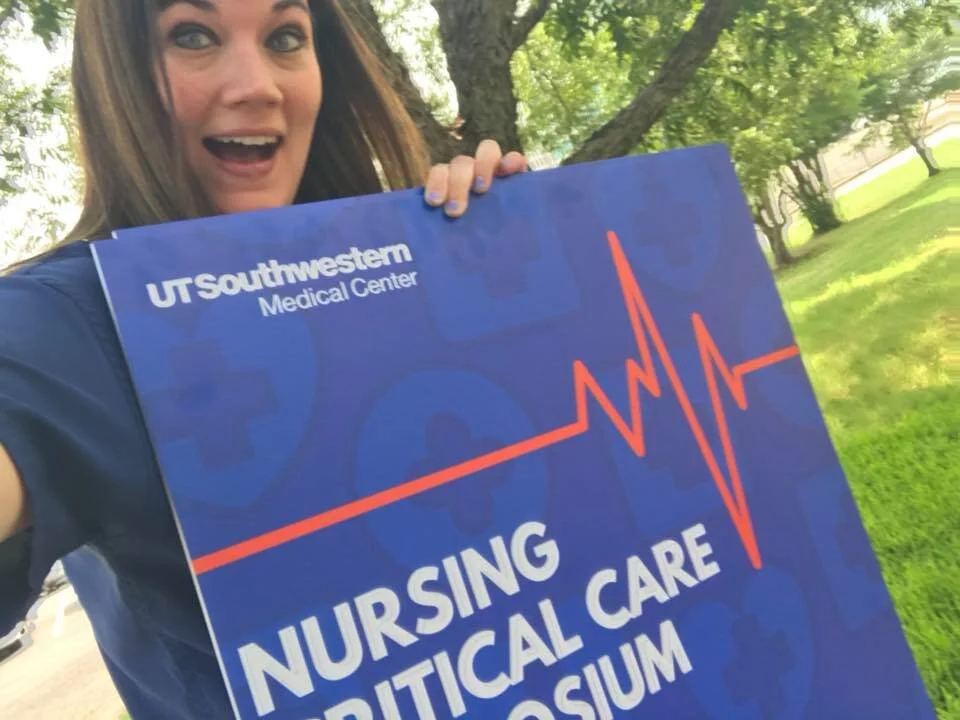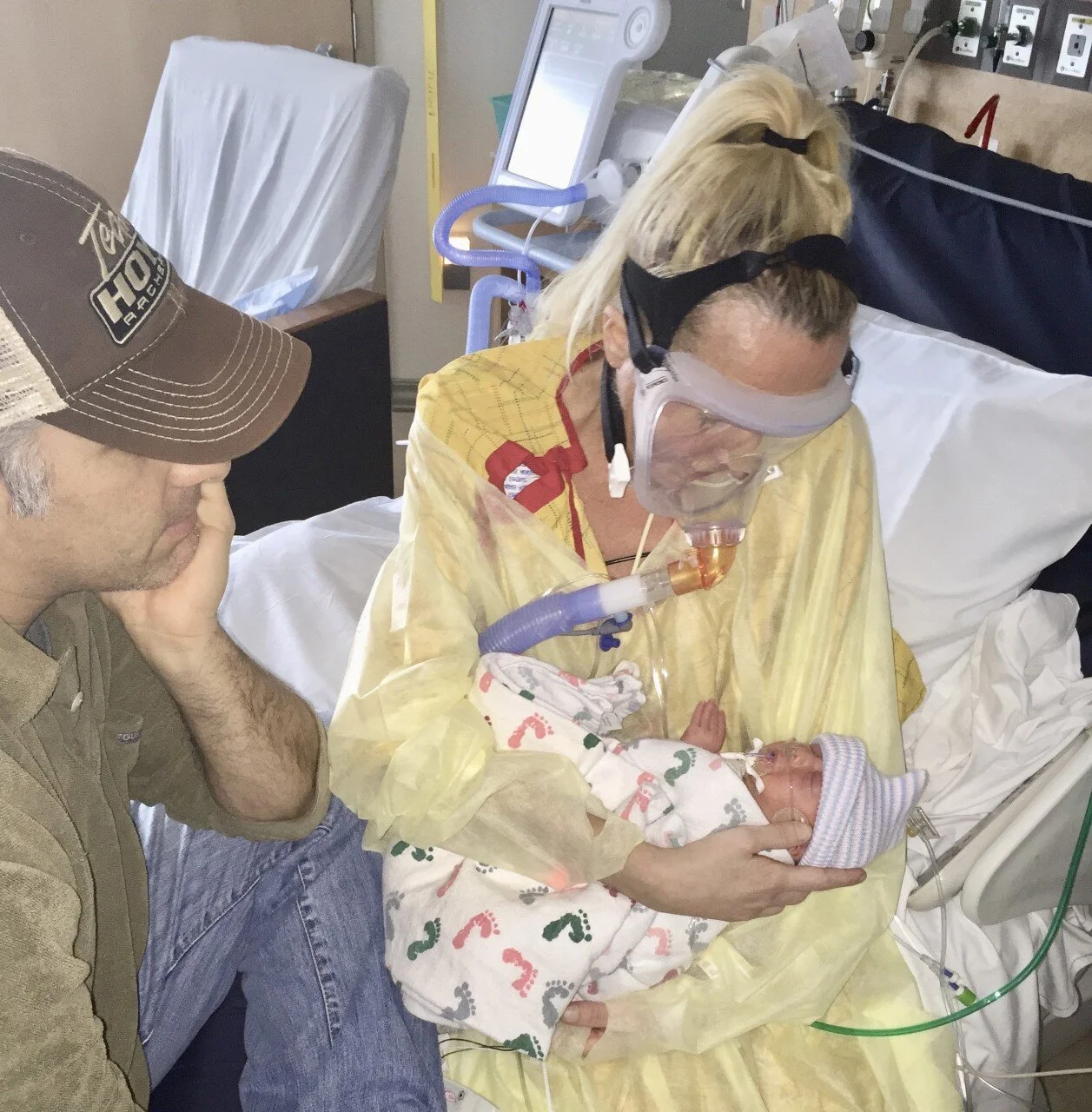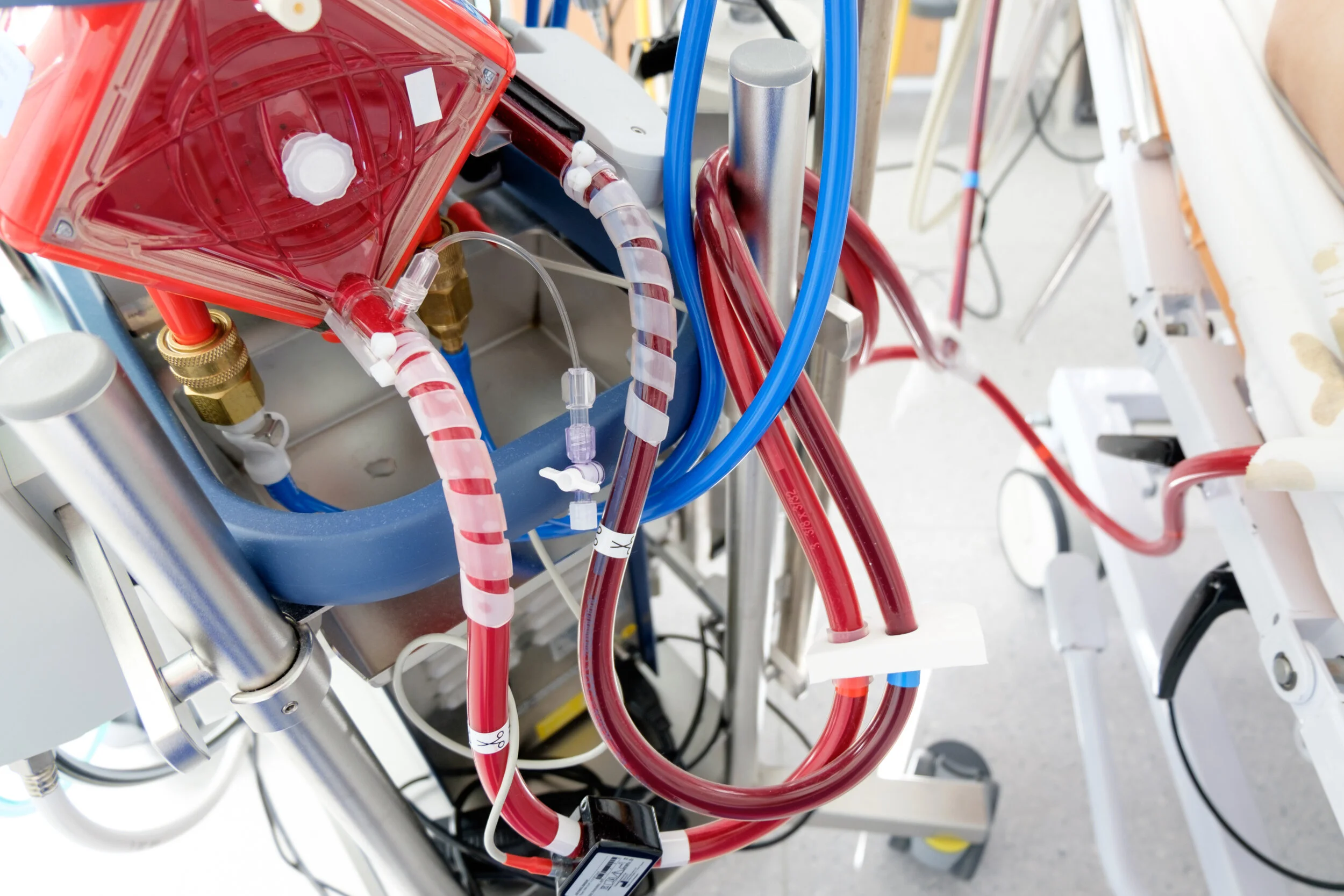
Resources for ECMO Specialists
You may be an ECMO Specialist, or may be on the journey to becoming one. Perhaps you’ve been an ECMO Specialist in the past and plan to get back into the specialty. Wherever you find yourself in the journey, this resource is for you.
Various centers have different paths to becoming an ECMO Specialist. However the certification and identification process looks at your medical center, there are fabulous resources available to help you develop and grow. The wellbeing and survival of your patient is hinged on continued learning, experience and training. Being an ECMO Specialist is a niche area of health care. You have the ability to make a lasting impact in the life of your patient, their family and the entire health care team.
If you have reservations about stepping into the role of an ECMO Specialist, you are not alone. It’s a big job. We have created this space with available resources with you in mind. There are many guides and tools that will help you in these pages so browse through, get familiar with the wealth of information at your fingertips created by seasoned people who have been in the ECMO space for quite some time.
A few places to start:
Reflect
Have you ever thought about your learning and experience journey? Chances are you have. It’s important to see where we’ve come from. Reflect on those beginning days of patient care, the learning curves and everyone who aided in the process. Have you thought about where you are now? Where do you want to be in five years? What areas do you feel you need to grow in? How can you develop that? Once you’ve identified these key points, it makes it easier to move forward.Own your Learning Journey
Make a growth plan as an ECMO Specialist. Take ownership of it, whether it is over a period of two years that you complete the growth plan or ten years, progress is forward motion. Experience and development take time, patience, determination and commitment.Go to an ECMO Course
You can take learning into your own hands by attending learning events, retaining the information, sharing knowledge and putting it into practice at your medical center.Take a Knowledge Assessment Exam
ECMO Resource Knowledge Assessment Exam
ELSO Knowledge Assessment Exam
American Society of Extracorporeal Technology CES-A Certification ExamExperience
Experience is the best teacher. Time at the bedside with a patient receiving ECLS therapy will always be your best teacher. Being precepted and mentored by other identified ECMO Specialists also adds to your learning experience and solidifies information received to bedside skills. You can also study, read and attend conferences. Express your interest in becoming an ECMO Specialist to your management and educator. Show that you are growing and interested in specializing in this area. Ask if there are any growth areas that you need to work on to help you become better. When there is an ECMO patient in the unit, get inquisitive and find out their story and plan of care. Get involved in helping teach wet labs or in-service sessions for staff about ECMO. Assist and be of help any way you can… creating needed policies, assisting with bedside cannulation, assisting with circuit changes, be involved when a patient arrives to the unit, is in critical condition and any time that the other ECMO Specialists in the room need a hand. There is always an opportunity to become more familiar and learn something new, no matter what the task.ELSO lays out a guideline for ECMO Specialist qualifications, education and experience in their “ELSO Guidelines for Training and Continuing Education” information. The term “ECMO Specialist” is defined as “the technical specialist trained to manage the ECMO system and the clinical needs of the patient on ECMO under the direction and supervision of a licensed ECMO trained physician.
The individual functioning as the ECMO Specialist should have
a strong critical care background in neonatal, pediatric and/or adult critical care and have attained one of the following
successful completion of a passing store on the state written exam given by the Board of Nursing
successful completion of an accredited school of respiratory therapy and be recognized as a Registered Respiratory Therapist by the National Board of Respiratory Care
successful completion of an accredited school of perfusion and national certification through the American Board of Cardiovascular Perfusion
Physicians trained in ECMO who have successfully completed institutional requirements for the clinical specialists.
Training and Education
ECMO Specialists are to go through specific topics of education sessions that would last between 24 to 36 hours of classroom training. Water drills are included in training and required that each individual has hands-on experience. A full understanding of all possible circuit emergencies and the appropriate intervention is required.
The Specialist is trained in the management of emergency situation intervention including - raceway ruptures, circuit changes, air in the circuit/cannula, pump head occlusions, power failure, decannulation. ELSO describes all topics to be included in each session, as well as return demonstration displayed by the Specialist in training. Additional bedside training is done with an ECMO Specialist Preceptor assigned to each new user. The bedside training should be no less than 16-32 hours and include thorough competency assessments to ensure proper understanding of patient management while undergoing ECLS therapy. Written and oral exams are expected covering the didactic, wet lab and bedside precepted shifts, and should be taken by all Specialists.
Quarterly and annual requirements include: team meetings; water-drills; annual examination; and a minimum number of pump hours. Connect with the ECMO community to join discussions and participate in therapy topics helps increase your understanding of ECLS management.Take part in ECMO Specialists Connection Meetings
We offer virtual meetings where ECMO Specialists from around the world connect to discuss patient scenarios, problems, new devices and a vast array of education related to ECLS. Visit our connect page or sign up here to join!Find a Mentor
Identify someone who has been involved with direct ECLS patient care and is more experienced than you. An individual who is a strong critical thinker, teacher, leader, and is willing to pass on their understanding to others. Ask them to be your mentor you. This can be made practical however works best for you, but they can be helpful in your growth journey.
We have created an ECMO Specialist Report Sheet for you and your team. These report sheets have been created by seasoned ECMO Specialists and are used to help streamline priorities and communication within a team.
ECMO Specialist Report Sheet Option 1
ECMO Specialist Report Sheet Option 2
References
Extracorporeal Life Support: The ELSO Red Book, edited by Roberto Lorusso, ELSO, 2017.
ELSO.org
”ICU Care; 5 Considerations for the ICU Nurse when Caring for an Adult ECLS Patient.” ECMO Multidisciplinary Care: Cleveland Clinic Abu Dhabi, edited by Mikaela Allen, Veronique Levis, pp. 23-27
Spotlight
Julie’s
ECMO Specialist Journey
What I most love about working with this population is seeing not just the patient, but the family’s reaction when we have a successful bridge to transplant or recovery…
Read More Here
Kerry’s
ECMO Journey
I have witnessed medical miracles, more than I can put on paper, but there is one that I would love to share… how ECMO reversed the course of my life.
Read More Here




